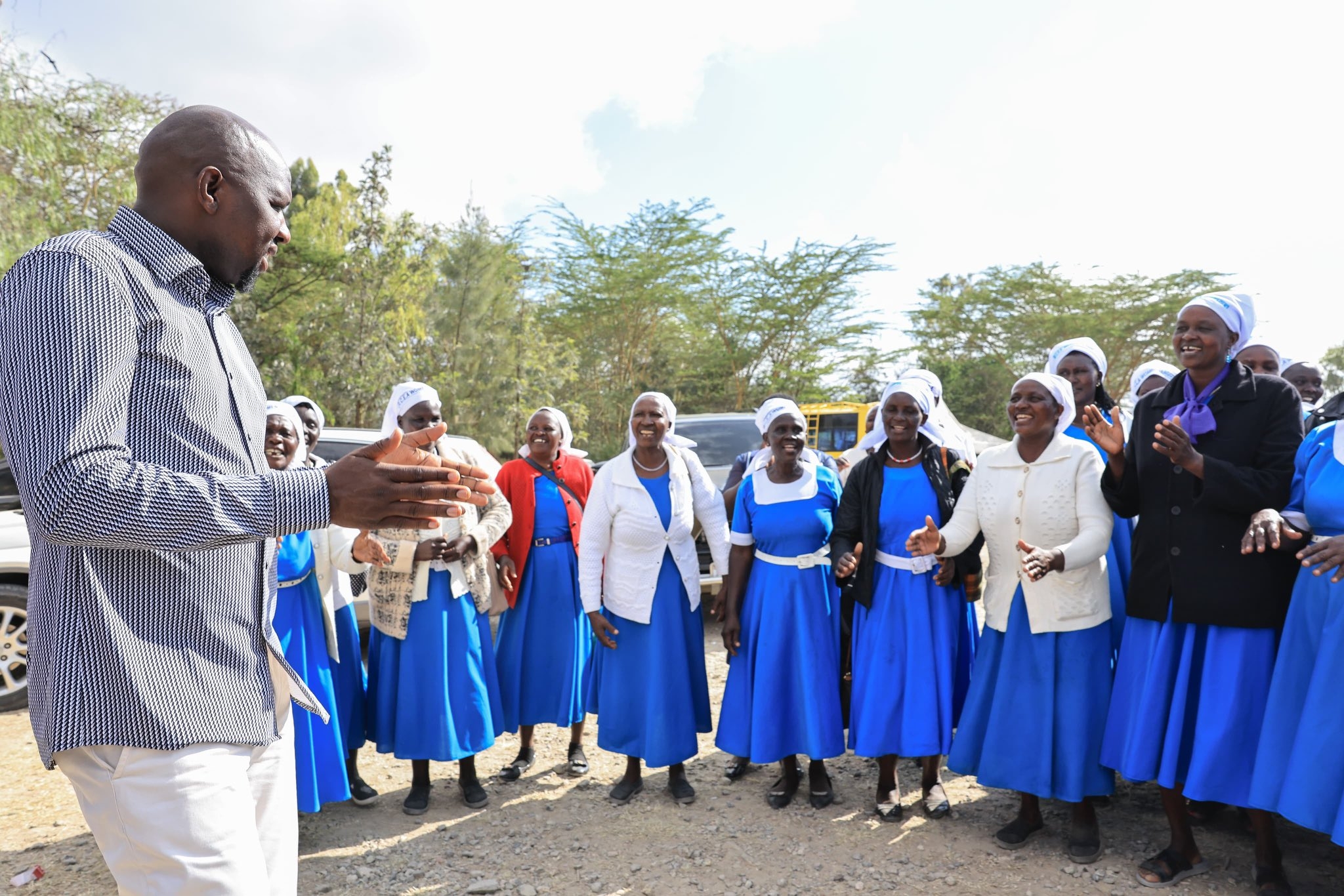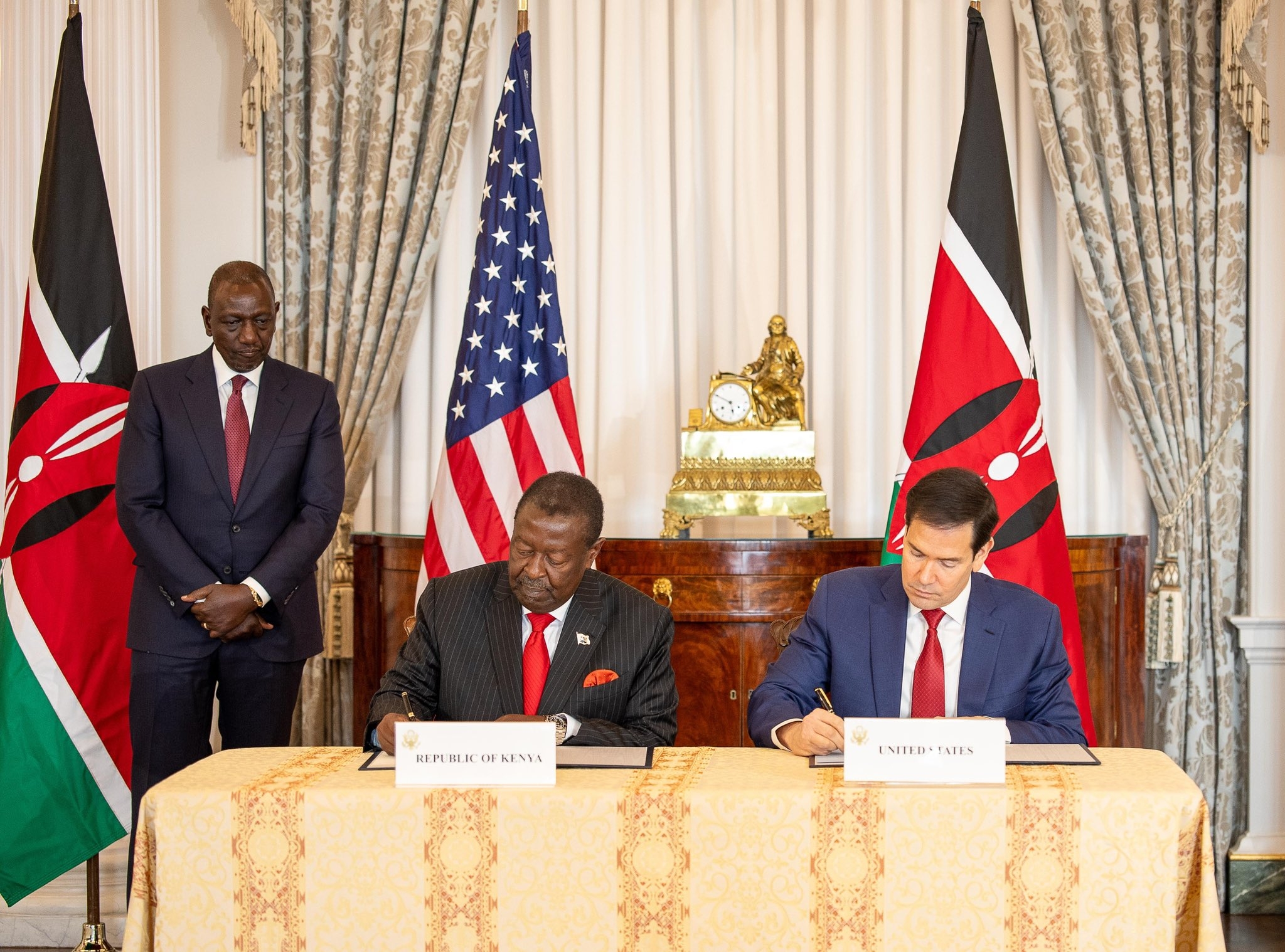“They’re 10 metres apart – we must write that down!” Wrapped up well against the chilly English November air, Jairus Guëdjo from Cameroon paces the distance between fruit trees in the picturesque hillside heritage orchard of FarmED’s HoneydaleFarm – a regenerative agriculture demonstration farm and learning centre in the heart of the Cotswolds.
“We plant our trees very similar to this but with shea and nut cashew instead of fruit.”
Jairus is a rural development and fisheries engineer and the Activities Coordinator for CERAF-Nord, helping local communities protect and restore land in the Benoué NationalPark in Northern Cameroon.
Benoué is a critically important, UNESCO-designated Biosphere Reserve covering 180,000 hectares of land, in which African elephants, lions, hippos and buffalo roam.
In a complex environment fraught with conflict and illegal deforestation, CERAF is working with hundreds of families to earn a better living producing honey, cashew nut and shea butter products, and to restore destroyed areas of the park by replanting more than half a million trees.
Right from the start this feels like such a special exchange, and I feel privileged to witness it, as we stand under the beautifully constructed, arched wooden roof of FarmED’s training centre, with all of the staff applauding a video showing the impact of CERAF Nord’s work in Cameroon, and as founder Ian Wilkinson takes Jairus through the process of how they built the centre and transformed the 100acres of land around it over the last 10 years.
FarmED is helping shape the future of the UK’s agricultural sector by educating members of the local community, farmers, policymakers, students and researchers on the benefits of nature-based farming that enriches the soil while removing CO2 from the atmosphere, radically lowering emissions linked to agriculture, protecting and replenishing biodiversity and restoring the health of our soil and landscape.
On a guided tour around the farm, Jairus is eagerly taking note of everything – the eco-buildings, the farming techniques, and the way FarmED involves local businesses and artisans.
Holding a pot of the beautifully branded honey produced on the farm, Jairus exclaims “Wow, they sell this for £7, imagine!”
We both think of the litre water bottle of dark gold, and delicious honey that Jairus brought as a gift from CERAF, and the excitement of potential is in the air.
“We could make branding like this, we could start a newsletter!” The FarmED guide walks us through the trial wheat plots that compare mainstream industrial farming practices to natural, regenerative techniques side by side. She digs up a big clump of earth in each field to demonstrate the differences in soil quality. Standing in the natural farming field, his hands full of dark, rich, sweet-smelling earth alive with fat worms that had made me squeal, Jairus grins approvingly “Ah yes, this is good soil.”
After the tour, we sit down to lunch with Ian and his wife and the co-founder of FarmED, Celene, in the stunning restaurant – everything locally produced, every detail reflecting FarmED’s mission to inspire, educate and connect people to build sustainable farming and food systems that nourish people and regenerate the planet.
As we eat, Jairus tells us about some of the immense difficulties his colleagues have faced in Cameroon whilst working to protect the forest, including violent attacks from nomadic pastoralist farmers that rampage through the park with their cattle, destroying trees.
It’s a stark reminder of the courage and resilience required to change lives and protect nature. He teaches Ian and Celene about how CERAF has used apiculture (beekeeping) to actively involve villages in protecting the forest from bushfires.
Honey production is a central part of the CERAF Nord’s programme, but his team don’t have access to adequate beekeeping suits, making the work dangerous.
After taking many photos of FarmED’s sturdy, white suits, Jairus was quite overwhelmed when Celene presented him with her and Ian’s beekeeping suits to take back with him.
As we leave the farm in the fading light to catch the train back to London, Jairus says: “I am impressed by everything I’ve seen here today – it has put so many ideas in my head after seeing it in reality.” Ian gives him a piece of advice: “Start with building one learning centre well, and when you’ve got that up and running, you can expand to other national parks in Cameroon. Then we can come to learn from yours next time!”
Jairus is now looking to raise funding to make his dream of building his learning centre in Cameroon a reality, to show local authorities, policymakers, villages and NGOs how you can protect nature in the long term by supporting local communities to start green businesses and earn a better livelihood.
Entries are open for the 2024 Ashden Awards. Applications will close on Thursday 25 January 2024.
Dawn Stevenson is the International Senior Programme Officer, Ashden
















